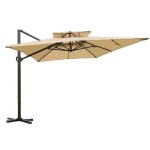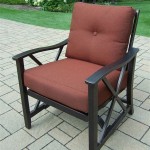Best Power Washer For Patio: A Comprehensive Guide
Maintaining a clean and inviting patio requires regular upkeep, and a power washer can be an invaluable tool in achieving this. Choosing the right power washer, however, depends on several factors, including the size of the patio, the type of material it's made from, and the severity of the dirt and grime buildup. This article explores the key considerations for selecting the best power washer for a patio, highlighting different types of power washers, their features, and appropriate applications.
The market offers a wide array of power washers, ranging from lightweight electric models suitable for small patios to heavy-duty gas-powered units designed for larger surfaces and more stubborn stains. Understanding the nuances of each type is crucial for making an informed decision. Failing to select an appropriate power washer can lead to ineffective cleaning or even damage to the patio surface.
Understanding Pressure and Flow Rate
The cleaning power of a power washer is primarily determined by two key specifications: pressure, measured in pounds per square inch (PSI), and flow rate, measured in gallons per minute (GPM). PSI indicates the force of the water stream, while GPM indicates the volume of water being delivered. The combination of these two factors determines the cleaning units (CU), which is calculated by multiplying PSI by GPM. A higher CU generally indicates greater cleaning power.
For patio cleaning, a PSI range of 1500 to 2000 is generally sufficient for removing dirt, mildew, and algae from most surfaces, including concrete, brick, and stone. Higher PSI levels may be necessary for removing stubborn stains or for cleaning larger areas more quickly. However, it's essential to exercise caution when using high PSI on delicate surfaces like wood or certain types of pavers, as it can cause damage. Adjustable pressure settings are therefore a desirable feature in a power washer for patio use.
The GPM is equally important, as it determines how quickly the cleaning process can be completed. A higher GPM will rinse away dirt and debris more effectively, reducing the time and effort required for cleaning. For typical patio sizes, a GPM of 1.5 to 2.0 is usually adequate. For very large patios or areas with heavy soiling, a higher GPM may be preferable.
Electric power washers generally offer lower PSI and GPM compared to gas-powered models. However, electric power washers are often more convenient to use, require less maintenance, and are quieter in operation. Gas-powered power washers, on the other hand, provide greater cleaning power but are heavier, louder, and require regular maintenance, including oil changes and spark plug replacements.
Types of Power Washers: Electric vs. Gas
The choice between an electric and gas-powered power washer is a fundamental decision. Each type has its own advantages and disadvantages, making it suitable for different patio cleaning needs.
Electric Power Washers: Electric power washers are powered by an electric motor and require a standard electrical outlet. They are generally lighter, quieter, and easier to maintain than gas-powered models. Electric power washers are typically more environmentally friendly, as they do not produce exhaust fumes. They are ideal for cleaning small to medium-sized patios, decks, and other outdoor surfaces around the home.
Electric power washers are available in corded and cordless models. Corded models offer a continuous power supply, while cordless models provide greater portability but may have a limited run time depending on the battery capacity. When choosing an electric power washer, consider the length of the power cord and the water hose, as these factors will affect the reach and maneuverability of the unit.
Gas-Powered Power Washers: Gas-powered power washers are powered by a gasoline engine and offer superior cleaning power compared to electric models. They are capable of generating higher PSI and GPM, making them suitable for tackling stubborn stains and cleaning large areas quickly. Gas-powered power washers are ideal for cleaning large patios, driveways, sidewalks, and other demanding cleaning tasks. They are often preferred by professional contractors due to their power and portability.
However, gas-powered power washers are heavier, louder, and require more maintenance than electric models. They also produce exhaust fumes, so they should only be used in well-ventilated areas. Regular maintenance tasks include oil changes, spark plug replacements, and air filter cleaning. Gas-powered power washers also require proper storage to prevent fuel degradation and carburetor problems.
When selecting a gas-powered power washer, consider the engine size and the type of pump used. Engines are typically rated in cubic centimeters (cc), with larger engines providing more power. Pumps are typically made of brass or aluminum, with brass pumps being more durable and longer-lasting. The type of pump also affects the maximum PSI and GPM that the power washer can generate.
Nozzles and Accessories: Optimizing Cleaning Performance
The type of nozzle used with a power washer significantly affects its cleaning performance. Different nozzles produce different spray patterns and angles, making them suitable for different cleaning tasks. Many power washers come with a set of interchangeable nozzles, allowing the user to select the appropriate nozzle for the job.
Nozzle Types: Common nozzle types include 0-degree, 15-degree, 25-degree, 40-degree, and soap nozzles. The 0-degree nozzle produces a concentrated, high-pressure stream that is ideal for removing stubborn stains and grime. However, it should be used with caution, as it can easily damage delicate surfaces. The 15-degree nozzle produces a wider spray pattern and is suitable for general cleaning tasks. The 25-degree nozzle provides a wider spray pattern and is less likely to damage surfaces. The 40-degree nozzle produces the widest spray pattern and is ideal for rinsing surfaces and applying soap. The soap nozzle is designed to draw detergent from a reservoir and apply it to the surface being cleaned.
Adjustable nozzles are another option, allowing the user to vary the spray pattern and pressure without changing nozzles. This can be particularly useful for cleaning patios with varying surface types or levels of soiling.
Accessories: In addition to nozzles, several other accessories can enhance the cleaning performance of a power washer. Surface cleaners are designed to clean large, flat surfaces like patios and driveways quickly and evenly. They typically feature a rotating spray bar that covers a wider area than a traditional nozzle. Extension wands can be used to reach high or hard-to-reach areas. Turbo nozzles combine the power of a 0-degree nozzle with a rotating motion, providing a powerful and efficient cleaning action. Foam cannons attach to the power washer wand and produce a thick layer of foam, which helps to loosen dirt and grime before rinsing.
The selection of appropriate nozzles and accessories depends on the specific cleaning tasks and the types of surfaces being cleaned. Understanding the function and limitations of each accessory is essential for achieving optimal cleaning results and preventing damage to the patio surface.
Ultimately, the "best" power washer for a patio is subjective and depends on individual needs and preferences. By considering the factors outlined above – pressure and flow rate, electric versus gas-powered, and the availability of appropriate nozzles and accessories – users can make an informed decision and select a power washer that effectively cleans their patio while minimizing the risk of damage.

The 5 Best Pressure Washers Of 2025 Reviews By Wirecutter

The 5 Best Pressure Washers Of 2025 Reviews By Wirecutter

The 5 Best Pressure Washers Of 2025 Reviews By Wirecutter

Best Pressure Washers For Patios Garden Furniture And Cars 2025 Bbc Gardeners World Magazine

The Best Pressure Washers For Cleaning Cars Decking And Patios

Sun Joe House Deck Pressure Washer Rated Concentrated Cleaner

Best Pressure Washer For Patio Posh Living Magazine

The 5 Best Pressure Washers Of 2025 Reviews By Wirecutter

Top Rated Electric High Pressure Washers Tested In 2025

The Best Pressure Washers Eight Expert Picks For Cleaning Garden Furniture And Patios Diy Guardian








